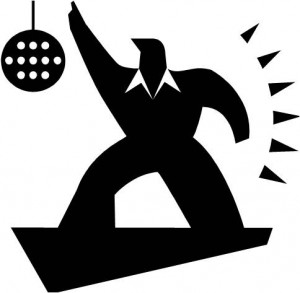
Many people that perform strategy or competitive intelligence jobs are feeling distress these days. It is a difficult environment for those responsible for the long term or externally focused thinking in an organization. It is not an easy time and yet there are things to do to survive while preparing for the economic improvement (fingers crossed).
The most important point is to remember that this time will pass.
One advantage of growing older is having more reference points. That is, you remember other bad (and good) times and realize that none went on forever. “Stagflation” from the late 1970’s went away. Disco (mercifully) ended. There was a recovery from the dot net implosion in 2001. We will get through the swine flu, too.
Okay, that does not mean that the time is not painful for many. So many people have lost their jobs. Others, who have managed to stay employed, may be feeling the most stress. (See the BusinessWeek article “When the Laid-Off Are Better Off”)
For the strategists and competitive intelligence professionals, there are three things to do.
 When a medical professional examines someone in the emergency room, he or she looks for signs of physical distress. How is the patient breathing? What about their skin color? Are their eyes dilated? Where are the visible signs of trauma? All of this (and more) is necessary to know before treating the person. After all, applying the wrong treatment can be more harmful than ignoring the physical distress.
When a medical professional examines someone in the emergency room, he or she looks for signs of physical distress. How is the patient breathing? What about their skin color? Are their eyes dilated? Where are the visible signs of trauma? All of this (and more) is necessary to know before treating the person. After all, applying the wrong treatment can be more harmful than ignoring the physical distress. When you get two people together that speak no common languages, communication is difficult. Sometimes, recognition of the miscommunication happens quickly. One person tries (in their own language) to ask if the other person understands what they are saying. In the opposite direction, the same question (in the second person’s language) follows sincerely puzzled looks from both people.
When you get two people together that speak no common languages, communication is difficult. Sometimes, recognition of the miscommunication happens quickly. One person tries (in their own language) to ask if the other person understands what they are saying. In the opposite direction, the same question (in the second person’s language) follows sincerely puzzled looks from both people. Enough already! Your work life is busy enough without someone telling you that you need to do still more things. Demands from your bosses, subordinates and customers inundate you. There is barely time to check your email, never mind respond to the flood of requests, meetings and other required activities. And then there is the business environment where survival alone seems to be a high goal. “Please” you want to say. No more. Not now. Not for me.
Enough already! Your work life is busy enough without someone telling you that you need to do still more things. Demands from your bosses, subordinates and customers inundate you. There is barely time to check your email, never mind respond to the flood of requests, meetings and other required activities. And then there is the business environment where survival alone seems to be a high goal. “Please” you want to say. No more. Not now. Not for me.